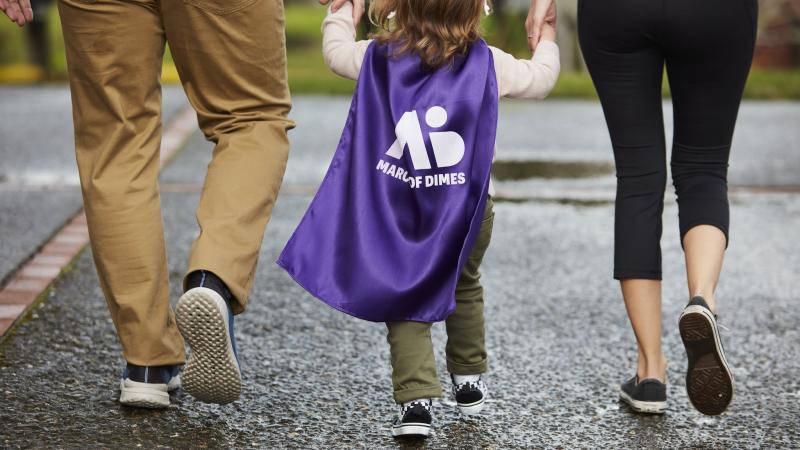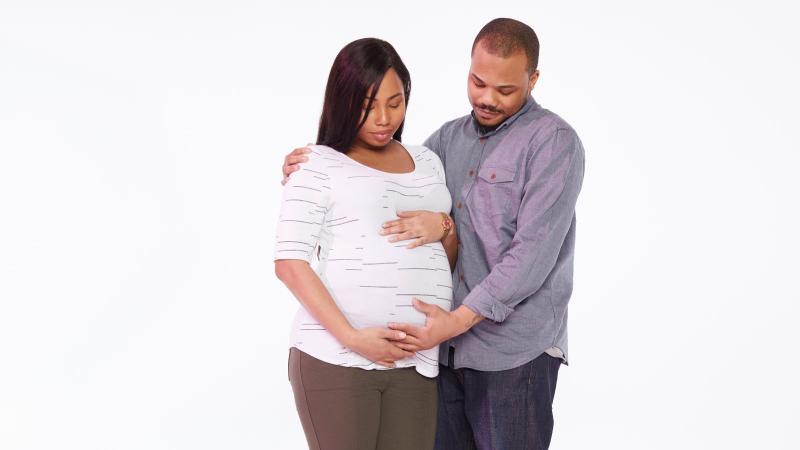Scholars use the PSDP program as a springboard into the type of deeper and more targeted scientific inquiry their careers will ask of them.
Due to its focus on young scientists who may not have had rigorous experience or training in scientific inquiry or publication, the PSDP program is more flexible in terms of research proposals, and recipient acceptance into the program does not imply a need to conduct and publish novel, breakthrough scientific work in the pediatrics space, as this in and of itself is rare.
Rather, the program is a March of Dimes effort to recognize and strengthen the wide breadth of human talent in the pediatrics field and spark a lifelong confidence, passion and commitment to fetal, neonatal and childhood health research that will undoubtedly change not only clinical outcomes, but lives, in the decades to come. As such, research proposals must be translational in nature and relate to the field of pediatrics – with a focus on prematurity, neonatal morbidity and mortality and fetal and neonatal health equity – but the outcome of the work is less important than the training and shaping of the recipient during the grant period.
This program is administrated by a host institution and is funded by a coalition of organizations including the March of Dimes, with coalition members pooling funding to support the research work of about a dozen grant recipients annually, the grant structure has recently changed, with each coalition organization funding a specific recipient.
|
Award Amount: $250,000 over two years Areas of Research: pediatrics and its subspecialties Open to: a MD, MD/PhD, or DO degree and pediatric residents near completion/completion of residency or first year of subspecialty fellowship |
For the 2025 cycle: Notification of Acceptance: no later than December 31, 2024 This grant is managed by the host institution of the PSDP. Learn How To Apply
|
- Candidates must be completing or have completed pediatric residency in the USA or Canada.
- Candidates must be citizens or lawful permanent residents of Canada or the United States of America (please note this is a requirement for the NIH-funded slots only; the PSDP has secured funding from partnering organizations that will support fellow slots who do not meet the NIH requirement)
- The proposed research project can be categorized as basic, clinical, health services, or translational research. The PSDP supports broad research training across research disciplines supported by mentors who are federally and privately-funded leaders within their field. In the clinical and translational research disciplines, the PSDP strongly supports candidates who wish to acquire rigorous training in those scientific disciplines listed in the Statement on Clinical and Translational Research Training for the PSDP. For candidates with MD-PhD degrees, the PSDP gives preference to research proposals involving mentors other than those responsible for the candidate’s doctoral or postdoctoral training.
- Candidates must have an MD, DO, or MD-PhD degree and must be enrolled in a pediatric training program (applications may be accepted from candidates whose academic training has been interrupted prior to fellowship or who have pursued alternative career tracks and wish to re-enter academic training). Please note that a maximum of 25% of training positions are available for MD-PhD applicants each year. Candidates with PhD degrees alone are not eligible.
- The proposed mentor has an academic appointment in a department conducive to the proposed research project. The mentor should hold the rank of Associate Professor or higher. In choosing a mentor, prospective PSDP candidates should consult with the nominating department chair and the relevant section chief, if the candidate plans to remain at the home institution. If the candidate plans to take a fellowship at another institution, then additional consultation with the sponsoring chair and the relevant section chief at the fellowship institution is a good first step. Candidates are encouraged to identify potential mentors at their chosen institution. If assistance is needed in making a selection, applicants are encouraged to seek input from their department Chair. Once a candidate has identified 2-3 potential mentors, the PSDP office can provide helpful advice in choosing among them.
- Pediatric residents apply by April 15 in their PGY-3 year. Residents who are “fast tracking” should inquire by the autumn of their PGY-2 year. Candidates in sub-specialty programs (such as cardiology, critical care, neonatology, or emergency medicine) apply by April 15 of their first clinical fellowship year.
- Any PGY4 first-year subspecialty fellow may apply as long as they are guaranteed two full years of research as a fellow.
Note: This application process is managed by the host institution of the PSDP program. March of Dimes does not manage this application process. Please see: https://amspdc-psdp.org/ for more details.
Step 1: Prospective applicants initiate the process by first reading the Statement on Clinical and Translational Research and submitting an Eligibility Form to the Program Administrator. Both documents are available for download at (https://amspdc-psdp.org/applying/). Eligibility forms are due February 15, 2024.
Step 2: The PSP Program Administrator will determine eligibility according to the Eligibility Criteria and then send out the application form with instructions.
Step 3: Applicants submit the provided application form by April 15, 2024 at 11:59 pm.
All interested applicants must complete an Eligibility Form and submit it to the PSDP Program Office before applying (applications received from anyone who has not previously submitted an Eligibility Form will not be considered). Eligibility forms are due on February 15, 2024. The Program Director and Administrator will review the form. If the applicant is eligible, he/she will be sent an application packet with instructions.
All application documents must be uploaded on the application via Redcap (unless specifically instructed to send directly to PSDP Administrator) and must be received by the PSDP Administrator no later than 11:59 pm on April 15th, 2024 (~14 months before entering the Program; if this date falls on a weekend, the deadline will be moved to the following Monday):
- The application form, which includes applicant’s name, the names of the Nominating and Sponsoring Chairs, residency information, and name(s) of proposed research mentor(s) and laboratory site.
- The applicant’s personal statement addressing the rationale for the clinical sub-specialty, choice of research area and career goals.
- A detailed research proposal, 6 pages in length (NIH R21 style), prepared in conjunction with the PSDP mentor. MD/PhD applicants must propose a research project in a new area outside of the PhD. Candidates proposing patient-oriented research or translational research that requires patient contact may request up to 20% clinical time in Years One and Two. This request must be incorporated into the initial PSDP application and must have the signed approval of the mentor. The candidate must be explicit as to the populations to be seen, the way in which time is to be spent, and will be expected to justify why the clinical time is essential to the performance of his/her research. Clinical activities (numbers of days rounding, call nights, clinics) will be tracked while on the PSDP fellowship in order to ensure that it stays below the 20% allotment. PSDP Fellows may request clinical time in years 1 and 2 after having begun their PSDP training by submitting their request, which will be reviewed by the Steering Committee.
Note: Applicants who propose additional training or coursework as part of their research plan must clearly identify the training or courses and incorporate their necessity into the application. If the applicant has a specific institution in mind for this training/coursework apart from the sponsoring institution identified on the application, a clear justification must be included. - Letter from Nominating Chair. A candidate must be nominated by the Chair of the pediatric department in which the candidate completes his/her pediatric residency. The nominating department bears the responsibility of sponsorship or identification of another sponsoring department for support of clinical fellowship training and must commit to assist the candidate in finding a junior faculty position at the conclusion of PSDP training. The letter will acknowledge the department’s commitment to help the candidate identify a junior faculty position providing two years of support with 75% time for research.
- Letter from Sponsoring Chair. The Chair of the sponsoring department (which may or may not be the same as the nominating department) must commit to funding the clinical component of fellowship training and to helping the candidate identify a junior faculty position that provides two years of support with 75% time free for research. The Sponsoring Chair must further verify that the candidate will have no clinical duties during the first two years of PSDP research training, and affirm the candidate will have at least 80% protected research time during their third year of PSDP training in their program. Exceptions to this plan must be approved by the Steering Committee.
- Letter of support and acceptance from proposed research mentor. The mentor should hold the rank of Associate Professor or higher and have an academic appointment in a department relevant to the proposed project. The letter should include a description of laboratory, scope of research, educational curriculum for trainee (mentoring plan), and other personnel to be involved in the training process. The letter should further cite agreement with the policy of no clinical duties during first two years of fellowship. Approval must be acknowledged by the mentor if the candidate is proposing patient-oriented research or translational research that requires patient contact.
- Mentor’s NIH grant application Biographic Sketch (five pages).
- Mentor’s NIH Other Support
- Applicant’s NIH Biographic Sketch listing publications, honors, and awards (five-pages).
- Applicant’s final medical school (and graduate school, if applicable) transcript(s).
- Letters of Reference. One additional letter of recommendation is required from a former faculty mentor or contact, not including letters from the nominating chair, sponsoring chair, and research mentor.
- Incomplete or late applications will not be considered. The applicant is responsible for ensuring that the application and all supporting documentation have been received by the deadline.
March of Dimes works with a variety of researchers from around the world. It is our hope that our awardees view their time as scholars, grantees, or center partners as mutually beneficial, and with value beyond the monetary consideration.
We expect our awardees to attend key meetings that pertain to their award program, or assign an appropriate delegate if not possible. We expect members of our research centers to collaborate scientifically and collegially with other centers or non-profit organizations that are identified during the course of the award period. We expect that our awardees will attend scientific meetings that may be established by MOD and use good faith efforts to help MOD raise funds for future awards through attendance at some events, interviews, or other public-facing opportunities.
We expect our awardees to make an impact on the thematic areas outlined in our strategic plan as the relate to their awards. To that end, we expect awardees to notify us of publications, posters, and presentations so that we may help to amplify their good work to the public.
All these things we do so that our awardees can be successful now and in the future…
Making an Impact with Research
March of Dimes research is focused on making an impact NOW to end preventable preterm birth; we do this by approaching research in several key ways. At both the bench and bedside– through descriptive research that aims to characterize and understand the factors that lead to preterm birth and other adverse outcomes; and through work that leads to mitigation and prevention of preterm birth- through therapeutics, diagnostics, and/or policy changes.
We know that pregnancy is complex. March of Dimes research approach takes a whole-system view and brings the best talent and minds to bear, so we can make a difference in our lifetime.
Recent examples
- How are we making a difference: March of Dimes research programs have made discoveries that lead to direct impact on the health of moms, babies, and their families.
- PRC microbiome studies leading to bedside testing; rapid, low cost predictive testing.
- Early detection of preeclampsia and other adverse pregnancy outcomes through several approaches, including cell-free RNA, data analytics, and other diagnostic markers.
- Understanding maternal-infant nutrition, to wit, NEC and how breastfeeding can improve outcomes
Your Support Helps us Fund Research
There are a number of ways to support research at March of Dimes. Your time – through volunteering at events, raising awareness in your community, and recruiting new and impactful researcher to our network; your attention – by focused attention on how research can impact your community, your country, and the global family; and your resources – by way of funding, access to your network, and getting involved in research directly.
We need your help to continue developing diagnostics, therapeutics, and understanding of the complex factors that lead to preterm birth, maternal and infant morbidity and mortality, and overall adverse outcomes in pregnancy. Moms, Babies, and their Families can’t wait for you to step up and get involved.
Join our amazing volunteer community and make a difference in maternal and infant health across the country.
Advocate for healthy moms and strong babies with March of Dimes. Join our network and make a difference in maternal and infant health.
March of Dimes donations go towards lifesaving research and advocating policies that prioritize the health of moms and babies. Your donation to our nonprofit can help improve the lives of moms and babies everywhere. Donate to March of Dimes today.



